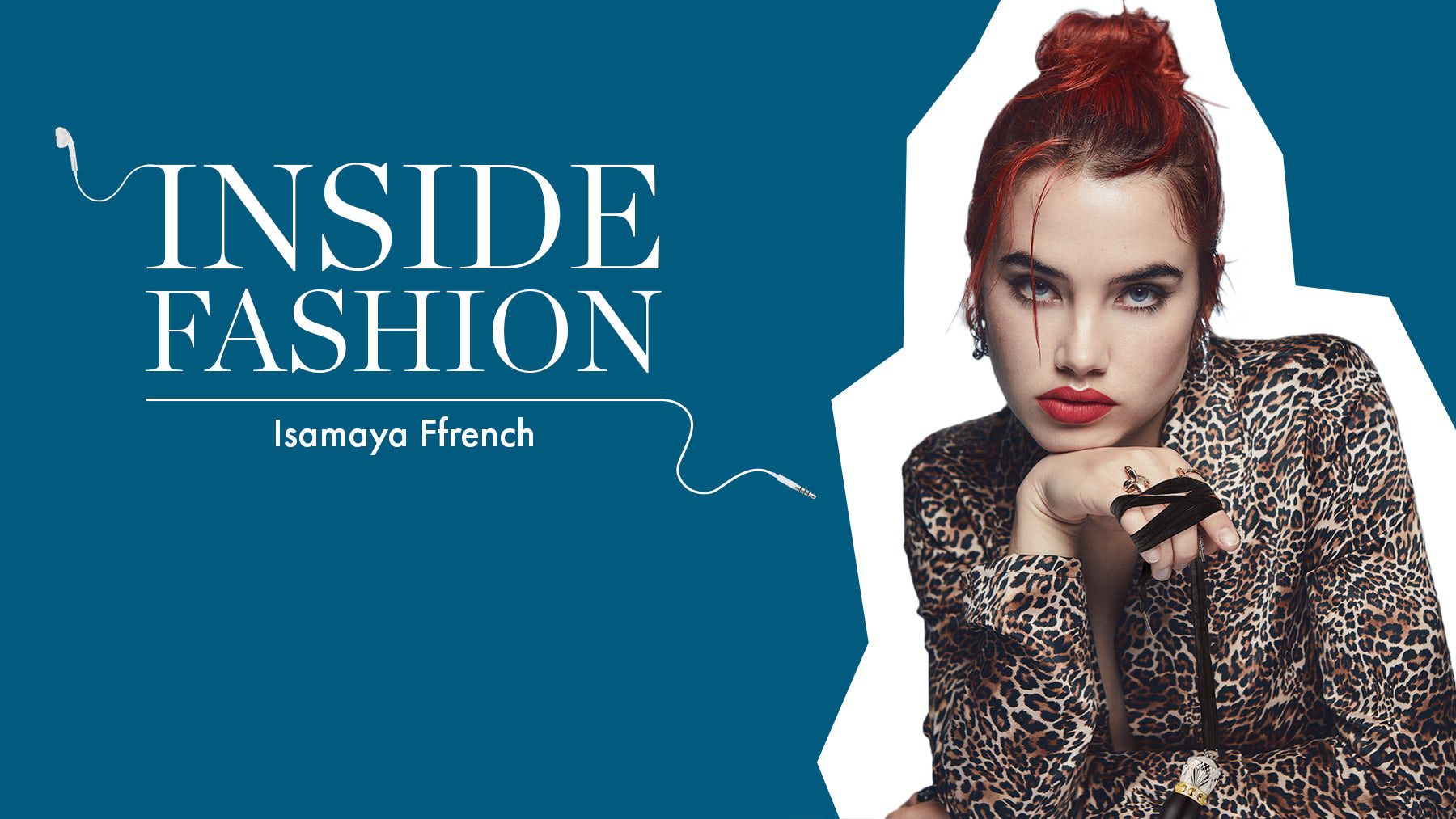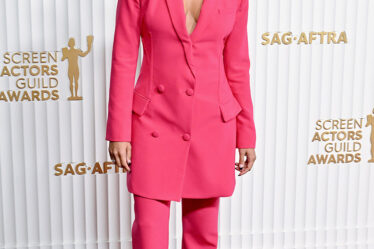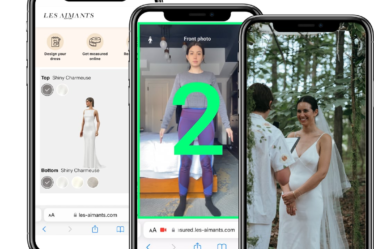
To subscribe to the BoF Podcast, please follow this link.
LONDON, United Kingdom — Isamaya Ffrench, creative director of Dazed Beauty and global makeup ambassador for Christian Louboutin Beauté, started out in makeup as a part-time face painter. After making a splash as the makeup artist behind Rihanna‘s radically thin eyebrows on the cover of British Vogue, Ffrench sat down with BoF’s Editor-at-Large Tim Blanks to discuss the transformative powers of makeup, the rapidly changing definition of beauty and the modern day restrictions on creative freedom.
Ffrench never planned to do makeup; she grew up with theatre and dance. “This was kind of an accident. Maybe that’s why I don’t feel anxious about it, I don’t feel anxious about my career. It’s just a means to express,” she said.
Creativity is a freedom to be obsessed, Ffrench said, and she’s obsessed with narrative. Her definition of beauty stems from narratives that she finds moving. “There are many ways to tell stories, and that doesn’t just mean films or books. You can tell stories in images.”
The freedom to express yourself has changed because every artist now works in the public eye, she explained, and have to make sure they’re inclusive and don’t offend anyone. “Public opinion seems to outweigh fact sometimes. You can only be obsessive as long as it’s not offending anyone.”
When working with designers to create runway shows — Ffrench cites Junya Watanabe as a favourite long-time collaborator — she has learnt how to interpret a brand’s vision and ideology while still conveying her own artistry through the end product. “In a way, there are very few things that I’ve done that I could really call my own work,” she said, because her work is presented in a space contributed to by other people.
Technology is both a tool and a hurdle to beauty, she said: “The more that people are attached to their phones, the less they look around them and feel and experience.” Is the digital age creating a feedback loop of self-referential information and visuals? Ffrench uses makeup as a kind of resistance, to take back control, Blanks suggested.
“Beauty has changed because it’s always being shaped by what beauty is equated with,” Ffrench said. Female aesthetic beauty in a commercial space is generally driven by health and our perception of what a healthy woman is, because that’s what will sell products. A woman who looks fertile and young is an aspirational message. “It’s basically anti-death,” she said.
Subscribe to BoF Professional for unlimited access to BoF articles, plus exclusive benefits for members. For a limited time, enjoy a 25 percent discount on the first year of an annual membership, exclusively for podcast listeners. Simply, click here: http://bit.ly/2KoRRBH, select the Annual Package and use code PODCAST2019 at the checkout.
To contact The Business of Fashion with comments, questions, or speaker ideas please e-mail [email protected].



